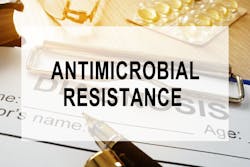WHO outlines 40 research priorities on antimicrobial resistance
The World Health Organization (WHO) has published its first global research agenda for the world’s scientists to address the most urgent human health priorities to combat antimicrobial resistance (AMR). It outlines 40 research topics on drug-resistant bacteria, fungi and Mycobacterium tuberculosis that must be answered by 2030, in line with the Sustainable Development Goals.
The WHO Global Research Agenda for AMR in human health will catalyze innovation and implementation research, spanning the epidemiology, burden and drivers of AMR, context-specific and cost-effective strategies to prevent infections and emergence of resistance.
It will also involve the discovery of new diagnostic tests and improved treatment regimens, the identification of cost-effective methods to collect data and translate it into policy, as well as how to implement current interventions more efficiently in resource-limited settings. Ultimately, the generated evidence will inform policies and interventions to strengthen the response to antimicrobial resistance, particularly in low- and middle-income countries.
The research agenda was developed based on a review of over 3000 relevant documents published over the past decade. The review identified 2000 unanswered questions or knowledge gaps, which were further consolidated and prioritized by a large group of AMR experts to conclude with the 40 most pivotal research topics. A summary report containing the research priorities is available.




